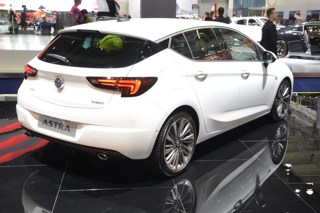New EU fuel consumption and emissions test will impact fleet operations, but Arval claims awareness is patchy.
The Worldwide Harmonised Light Vehicle Test Procedure (WLTP) replaces the outgoing New European Driving Cycle and is designed to provide results that are much closer to real world figures.
Experts believe it will result in official MPG and CO2 figures rising by up to 30%.
Shaun Sadlier, head of consultancy at Arval, said: “The adoption of WLTP is just starting to get underway and the first manufacturers are releasing their figures under the new test.
“By September of this year, all cars on sale must have certification and, from the start of 2019, manufacturers will have to use WLTP figures in all their marketing and promotional material.
“This is something that is happening now and has definite implications for fleets in various areas.”
Most importantly, because MPG and CO2 emissions figures form such an important element of drawing up choice lists, it could affect which vehicles fleets choose to run.
Sadlier continued: “Our experience so far is that awareness among fleets is patchy and some are being slow to recognise the implications of the new test. They tend to know about WLTP but not about its imminent arrival nor about the potential impact it could have.”
The most immediate problem facing fleets was simply to ensure that when they were looking at figures for a particular car, they knew whether they were NEDC or WLTP statistics.
“If you are comparing different vehicles, you need to ensure that you know what you are looking at and that any decisions are being made on a like-for-like basis,” he said.
The second key point stemmed from the fact that the Government had announced it planned to start using WLTP figures for all vehicle taxation from April, 2020.
“While this is more than two years away, it is well within the typical life cycle of fleet vehicles that you are buying now,” added Sadlier. “You need to be thinking about the potential impact.
“We launched a guide for customers a few months ago, and are creating a comparison tool to model the impact of the new test results on both company whole life cost and driver’s company car taxation.
“We are also identifying how fleets with different approaches to choice list construction would be affected by the change.”
He concluded: “Overall, we believe that that the arrival of WLTP is a hugely positive development for fleets, giving them easy access to fuel and emissions data that is much more meaningful.
“It has been widely acknowledged for a long time that the old NEDC test was flawed when it came to the modern vehicle parc and having better quality information will simply allow fleets to make better, more accurate decisions.
“However, the changeover will require some proactive management and we are already helping our customers through this process.”






















Sage & Onion - 07/03/2018 11:53
I am currently reviewing our car policy choice lists because with all the changes to taxation and now WLTP the level playing field of a choice list based on Whole Life Cost appears to be no longer level. So until WLTP is adopted universally I am considering whether to abandon WLC and base our car policy choice list based purely on monthly rentals, with perhaps a cap on P11D value for each grade. Otherwise new models introduced by manufacturers that use the new WLTP measurements probably won't make it into drivers available choices, even though they are potentially better equipped, safer, and more fuel efficient (in real world driving conditions).